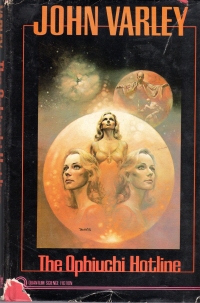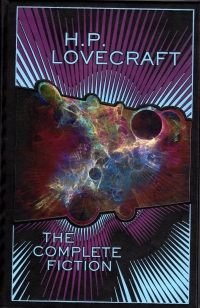 I picked up this book at the Friends of the Springfield-Greene County Library book sale a year ago, and I regret not macroing out the spelling of Friends of the Springfield-Greene County Library book sale because, gentle reader, I do not touch-type, and typing the name of that particular affair takes a lot out of me. Pardon me while I go nap to recuperate.
I picked up this book at the Friends of the Springfield-Greene County Library book sale a year ago, and I regret not macroing out the spelling of Friends of the Springfield-Greene County Library book sale because, gentle reader, I do not touch-type, and typing the name of that particular affair takes a lot out of me. Pardon me while I go nap to recuperate.
Ah, that’s better. Now, about this volume.
As you might recall, I read John Varley’s Millennium three years ago and liked it better than the Kris Kristofferson film.
This book is Varley’s first, and like much speculative fiction of the era (and maybe this era, too, but I get the sense a lot of stuff these days is either urban fantasy influenced or space marines stuff, mostly because I’ve read some of the latter and read blogs from Marko Kloos and Larry Correia–I dunno what contemporary science fiction is like outside of that). This book deals with a genetic scientist who is put into prison and sentenced to death for working on the human genome and cloning. It’s told in the milleiu of invaders who have driven humans from earth to outposts in the solar system because they, the invaders, favor intelligences like that of dolphins an whales. Similar creatures exist on Jupiter, and the invaders ignore humans who do not bother the invaders and the like intelligences. A technologically advanced transmission has erupted from somewhere near Ophiuchi (O-fee-you-key) 70 and helps humanity advance, including genetic technology (which has gone ignored by humanity but a few outlaw scientists).
Anywho, a politcal heavyweight on the moon rescues the scientist by presenting an illegal clone to take her place for the execution. He copies her memories and then trains her to work for him, killing her when she tries to escape and replacing her with a clone. After some number of tries, she goes to a moon of Jupiter and encounters a teacher clone and they plot an escape. And another clone goes to Pluto to try to find a way to Ophiuchi after the transmitters demand payment of hundreds of years of scientific knowledge. And allies of the scientist revive a clone she herself left in place.
For a while, it gets a little confusing remembering which clone team is doing what and why, especially as I had to put the book down sometimes for a couple of nights.
And then the book comes to a resolution, very abruptly, in an unsatisfying fashion.
It’s kind of how Lost ended. Remember that television show? Remember all the plot lines and questions, and how they ended it by setting up a final set of questions they could almost answer, and they did so in an unsatisfying fashion? This book has a lot of compelling things going on, some early questions about the nature of self and whether clones are you, machinations of a politician playing games several steps ahead of the characters, and this all gets abandoned for an abrupt ending that does not answer many of the questions.
It’s an interesting read for the speculative nature, but ultimately left me a little disappointed. But if I find another John Varley out there, I’ll pick it up and hope for better.
Books mentioned in this review:








